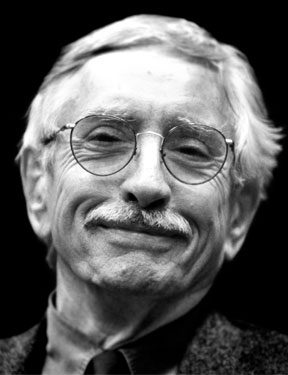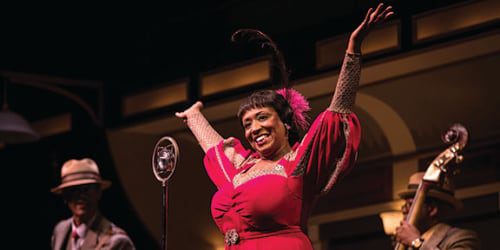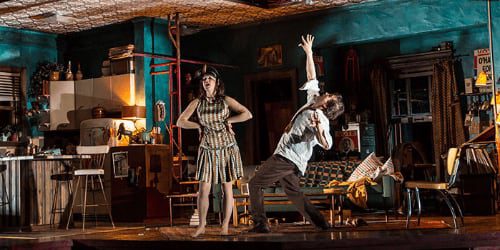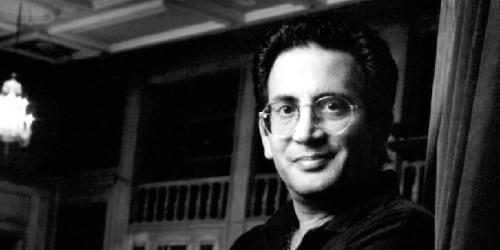- Tickets
- Memberships & Season
- Engage & Learn
- Your Visit
- Support
- Artists
- About
- Accountability
- Ticket Donation Requests
- Financials
- Rentals at the Goodman
- Our History
- Staff & Leadership
- Join the Goodman
- Press Room
- 2025-2026 Season
- 2024-2025 Season
- 2023 – 2024 Season
- 2022 – 2023 Season
- 2021 – 2022 Season
- 2019 – 2020 Season
- Hershey Felder as Irving Berlin
- Goodman Gala
- A Paris Love Story
- Bernhardt Hamlet
- The Santaland Diaries
- American Mariachi
- School Girls; Or, The African Mean Girls Play
- Molly Sweeney
- graveyard shift
- Roe
- 42nd Annual Production of A Christmas Carol
- Dana H
- Daughter of a Cuban Revolutionary
- New Stages Festival 2019
- 2018 – 2019 Season
- 2017 – 2018 Season
- 2016 – 2017 Season
- 2015 – 2016 Season
- 2014 – 2015 Season
- About the Goodman
Artist Bio

Edward Albee
(Bio as of October 2003)
Edward Albee became a force in the American theatrical scene in the late 1950s, writing short plays that not only used experimental language and form, but also confronted sensitive cultural issues. Although his frank dialogue and provocative topics disturbed some critics, his body of work—which has been described as confrontational, uncompromising, controversial and elliptical—has expanded the landscape of American theatre.
Once explained by Albee as a collection that is “a stand against the fiction that everything in this slipping land of ours is peachy-keen,” his writing has often challenged the status quo, never resting on a particular form or style. Working with the outlook that “there is not always a great relationship between popularity and excellence,” Albee has been consistently inventive throughout his career, even if his experimentation did not always yield commercial success. His continual exploration has influenced generations of theatre artists, and his perseverance has also been rewarded with numerous critical awards, including three Pulitzer Prizes for Drama (A Delicate Balance, 1966; Seascape, 1974; Three Tall Women, 1991), Tony awards for best play for Who’s Afraid of Virginia Woolf? (1963) and The Goat, or Who is Sylvia? (2002), the Kennedy Center Commendation for Lifetime Achievement (1996) and the National Medal of Arts (1996).
Born in Washington, D.C. on March 12, 1928, the infant Albee was adopted by Reed Albee, the son of Edward Franklin Albee of the prosperous Keith-Albee vaudeville theatre chain. Named after his grandfather, Albee was raised in affluence and sent to selective private schools, being expelled from most of them. He also spent a year and a half at Trinity College in Hartford, Connecticut, but was dismissed for skipping classes and refusing to go to compulsory chapel. Albee then moved to New York’s Greenwich Village, where he was associated with the era’s avant-garde artistic movements. After living on a small fund left to him by his grandmother and working menial jobs, his career began to thrive in 1959 when his one-act play The Zoo Story made him a well-known playwright, first in Europe (the play premiered in Berlin) and then in America. Albee’s ascendance to the top ranks of American theatre was further assured with the success of Who’s Afraid of Virginia Woolf? (1962), which was his first full-evening piece and also his Broadway debut (his other plays had been produced off-Broadway).
Some of Albee’s other significant works are The Death of Bessie Smith (1960), The Sandbox (1960), The American Dream (1961), Tiny Alice (1964), Box and Quotations from Chairman Mao Tse-Tung (1968), All Over (1971), The Lady from Dubuque (1980), Marriage Play (1987), The Play About the Baby (1998), and The Goat, or Who is Sylvia? (Notes Toward a Definition of Tragedy) (2002).
– Amy Steele, Alley Theatre Resident Dramaturg (Reprinted Courtesy of the Alley Theatre, Houston)























